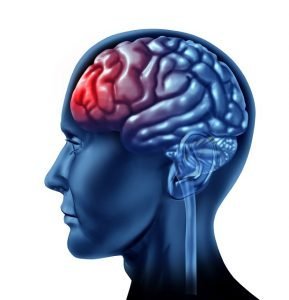
Free Consultation(203) 447-0000

Free Consultation(203) 447-0000
 Strokes can be mild or quickly become devastating. They can lead to a permanently reduced mental capacity and in some cases, lead to death. The speed of treatment for the patient is the primary determinant in how the stroke will impact their overall health. What most patients do not realize, however, is that a large majority of strokes go undiagnosed or are diagnosed much later than necessary. Any delay in treatment can further harm the stroke victim. When such errors occur, patients may have the right to sue a physician for medical malpractice.
Strokes can be mild or quickly become devastating. They can lead to a permanently reduced mental capacity and in some cases, lead to death. The speed of treatment for the patient is the primary determinant in how the stroke will impact their overall health. What most patients do not realize, however, is that a large majority of strokes go undiagnosed or are diagnosed much later than necessary. Any delay in treatment can further harm the stroke victim. When such errors occur, patients may have the right to sue a physician for medical malpractice.
Strokes are abrupt interruptions of blood flow to the brain. Timing is critical in diagnosing a stroke because the longer the brain is deprived of blood flow, the more brain cells will ultimately die. There are some symptoms loved ones and physicians should be on the lookout for when diagnosing a stroke, which include:
If a stroke is suspected, a physician should order an MRI or a CT scan of the brain right away. These tests will often reveal whether a patient has suffered from a stroke and the type of stroke that they have suffered from. A doctor can also order additional tests to determine the cause of the stroke.
There are two types of stroke and it is critical a doctor not only identify the patient is suffering from a stroke, but also understand the type of stroke they may be suffering from. When a physician fails to diagnose a stroke, even after tests have been conducted, they may be acting negligently. Misdiagnoses can occur when a physician also fails to identify the type of stroke the patient is suffering from or when the physician diagnoses a condition other than a stroke. Some illnesses are commonly misconstrued for strokes, including:
In these types of cases, the burden of proof is on the plaintiff. The plaintiff must show that the doctor failed to diagnose but also breached the standard duty of care. That means that they must show that another physician would have come to the right diagnosis and the physician failed to follow the standard care when they improperly diagnosed or misdiagnosed entirely. For example, the physician did not order a CT scan or MRI; instead, they ignored the symptoms and diagnosed the patient with a seizure disorder. Because they were having a stroke, the untreated stroke led to further complications. In this case, the doctor misdiagnosed and failed to order proper tests before coming to a diagnosis; therefore, they breached the standard of care and would likely be held liable for any injuries that occur because of that breach.
If you or a loved one suffered from a stroke that was misdiagnosed or if the diagnosis was delayed, contact a CT medical malpractice attorney. You may be entitled to compensation for your injuries, additional medical care and other damages. Contact Berkowitz and Hanna LLC today to schedule a no obligation case evaluation. Call us or contact us online to get started.
Berkowitz Hanna
